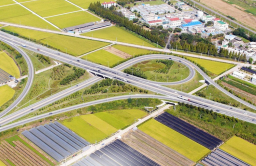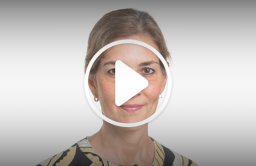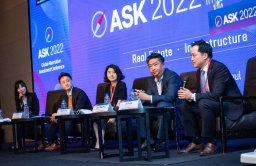-
KOSPI 2577.27 -2.21 -0.09%
-
KOSDAQ 722.52 -7.07 -0.97%
-
KOSPI200 341.49 +0.02 +0.01%
-
USD/KRW 1396 -2.00 0.14%
Unlocking value in European mid-market infrastructure: Infracapital
European infrastructure likely to be safe haven in next stage of the economic cycle, Transaction Managing Director Deetman says
By
Oct 17, 2022 (Gmt+09:00)
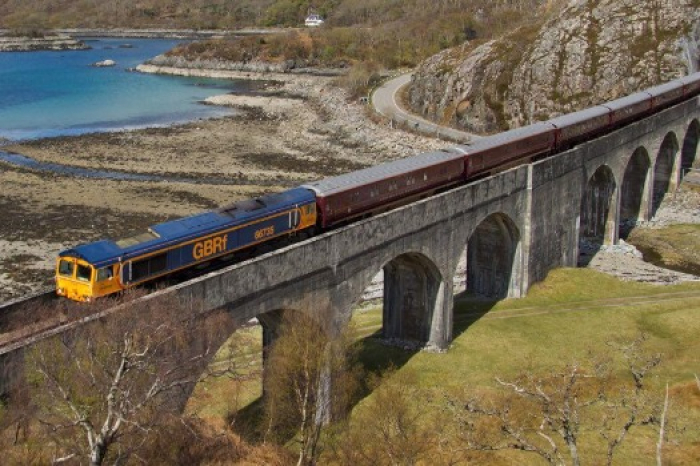
Global investors are eyeing infrastructure as the asset class is inflation-protected, providing strong downside protection in times of high volatility.
Among various asset types in infrastructure, clean energy-related assets have massive potential for growth especially in the European market with its net zero by 2050 targets, Infracapital's Transaction Managing Director Herman Deetman said in an email interview with The Korea Economic Daily on Oct. 17.
The investment firm sees that energy security continues to be a focus globally and hydrogen and carbon capture and storage will be sectors to watch. Going forward, in a globalized world, the decarbonization of transport is another key area that will require private investment, Deetman said.
Infracapital is the European infrastructure division of M&G Investment Management Ltd. and M&G Alternatives Investment Management Ltd. The firm, having managed £6.8 billion ($7.5 billion) across six funds, targets mid-market investments in both brownfield and greenfield infrastructure in the region.
The following is an interview with Deetman.
▲ Infrastructure is often regarded as a protected asset class amid inflation. What is Infracapital's view on European infrastructure strategies in the high-inflation era?
"Periods of high volatility tend to drive demand for infrastructure investments. In fact, investment in essential infrastructure is a key tool for maintaining economic momentum in challenging times. The asset class is traditionally inflation-protected, so I believe it should be one of the safer places to invest in as we move into the next stage of the economic cycle.
Inflation protection remains a key feature of Infracapital’s assets, whether that is through direct inflation-linked contracts or indirectly through high barriers to entry. True essential infrastructure assets should be able to pass on the higher cost of debt through the revenue line. However, we also mitigate interest rate risk through hedging.
A recent analysis by Goldman Sachs concluded that there is a €10 trillion investment requirement into European infrastructure by 2050 in order to meet its net carbon emission target. The events in Ukraine have reminded policymakers of the importance of energy security, so we see massive potential for growth in clean energy and energy transition-related assets.
The strong support for this is evident in the policy upgrades implemented by European governments such as REPowerEU, a European Commission proposal to end reliance on Russian fossil fuels before 2030.
The plan has accelerated energy independence and the shift from reliance on fossil fuels, with initiatives such as doubling the rate of deployment of heat pumps and accelerating the roll-out of hydrogen."

▲ Infracapital has been through various economic cycles since its inception in 2005. How has Infracapital worked to deliver high returns for its investors?
"Infracapital’s founders, Martin Lennon and Ed Clarke, have one of the longest-standing partnerships in the infrastructure investment space, having invested together for over 21 years and managed over £6.8 billion across six funds.
Infrastructure has changed dramatically in that time and Infracapital has evolved with the market, supporting the changing needs of people and the environment, while offering investors diverse exposure to portfolios that seek to deliver both attractive returns and consistent yield.
The firm has invested through several very difficult periods including the global financial crisis and COVID-19. Through this, Infracapital has learned that if you have businesses that are absolutely essential to the customer, then you can survive seismic shocks like those.
Our transaction teams are always assessing new sectors as the asset class evolves, but we remain highly focused on essentiality. We are naturally cautious and assess how businesses would respond in a downturn.
Our investment in fiber is a great example of this. We first invested in the space in 2015 and now have eight fiber platforms across seven countries. The importance of the sector was well demonstrated during COVID-19, and it has now established its position as a true utility."
▲ Energy transition funds often focus purely on renewable energy generation, but how important is it to decarbonize existing assets?
"There are many parts of our economies, whether industrial production, transportation or residential heating, which simply cannot be replaced overnight with a fully renewable alternative.
To illustrate the point, a recent McKinsey & Company report highlighted that some 54% of greenhouse gas emissions in the EU are derived from transportation and industry, compared to 23% from the power sector.
It is vital we invest further in these sectors to improve efficiency and lower overall energy consumption as we continue to develop a road map to net zero. That is where we can make a real impact.
Our brownfield investment strategy invests in essential, existing businesses and increasingly helps them to transition to a more sustainable future. A good example is BCTN-MCS, our inland waterway container transport business in the Netherlands and Belgium.
One barge is capable of moving the same volume of goods as 75 trucks so is providing a solution to reduce the supply chain carbon footprint of its customers, but it doesn’t just stop there. We hope to make the barges themselves net zero through batteries and/or hydrogen power, which will additionally reduce the carbon footprint of the company and its customers."
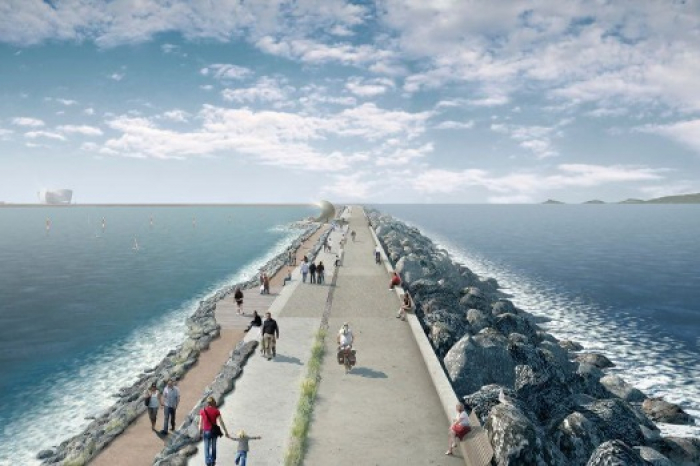
▲ The concept of the infrastructure asset class is expanding. Are there any particular sectors in which you see the most opportunity?
"Energy transition-related assets have massive potential for growth, particularly as countries strive to achieve their net zero targets by 2050.
Additionally, we recognize the critical role that storage has in the energy transition journey and there is a need for alternative solutions for times when the wind doesn’t blow and the sun doesn’t shine. Energy security is going to continue to be a focus globally and hydrogen and carbon capture and storage will be sectors to watch.
In a globalized world, the decarbonization of transport is another key area that will require private investment. I have already alluded to the fiber sector where quite surprisingly some parts of Europe have very low levels of penetration. In a post-pandemic world, the importance of high-speed connectivity has come to the fore and there is still major investment needed."
▲ ESG factors are becoming essential in the decision-making of investments. How important is ESG to Infracapital’s investor base?
"Investors are much more knowledgeable on the ESG topic and the bar has been raised with expectations for particular accreditations or specific quantitative information. We are seeing increased requests for ESG-related data and investors apportioning capital to “impact” allocations. However, this is not surprising considering the critical role the sector is playing in delivering energy transition.
Infracapital sees ESG as a value-enhancing lever in its own right and transparency to investors on this topic is extremely important to us. We now have a dedicated responsible investment manager to ensure we are in line with best practices at both the firm and portfolio company level.
Something we have worked hard on in the past 12 months has been carbon emissions reporting across our portfolios to ensure LPs can see real data.
The landscape is continually evolving and we see ESG regulation developing and expect a shift towards standardization of data with the introduction of initiatives like sustainable finance disclosure regulation (SFDR) classifications. We believe this is something that will remain firmly on the agenda for some time."
The value of investments will fluctuate, which will cause prices to fall as well as rise and investors may not get back the original amount they invested. The views expressed in this article should not be taken as a recommendation, advice or forecasts.
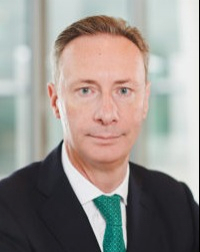
Deetman started his career at Kleinwort Benson, moving on to UBS where he became the head of European Utilities. From there, Deetman spent his career at Deutsche Bank and HSBC undertaking roles as the head of European Utilities and the head of Power & Utilities EMEA respectively.
Deetman has extensive experience advising companies, investors and governments on transactions in the power, renewables, utilities and broader infrastructure sectors -- most recently as a senior advisor at Aperghis & Co, an advisory boutique focused on the Netherlands.
Deetman studied economics and business studies at the University of Amsterdam and obtained a master's in Japanese Language and Japanese Studies from SOAS (University of London).
Write to Ji-Hye Min at spop@hankyung.com
Jihyun Kim edited this article.
-
Jul 18, 2022 (Gmt+09:00)
-
 Alternative investmentsPartners Group wins $620 mn Korean LPs mandate for infra
Alternative investmentsPartners Group wins $620 mn Korean LPs mandate for infraFeb 25, 2022 (Gmt+09:00)
-
Jun 02, 2022 (Gmt+09:00)
-
May 25, 2022 (Gmt+09:00)
-
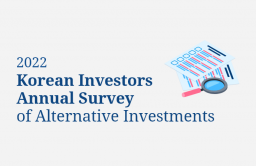 Korean InvestorsRenewables emerge as LPs' top infrastructure sector
Korean InvestorsRenewables emerge as LPs' top infrastructure sectorMay 03, 2022 (Gmt+09:00)


